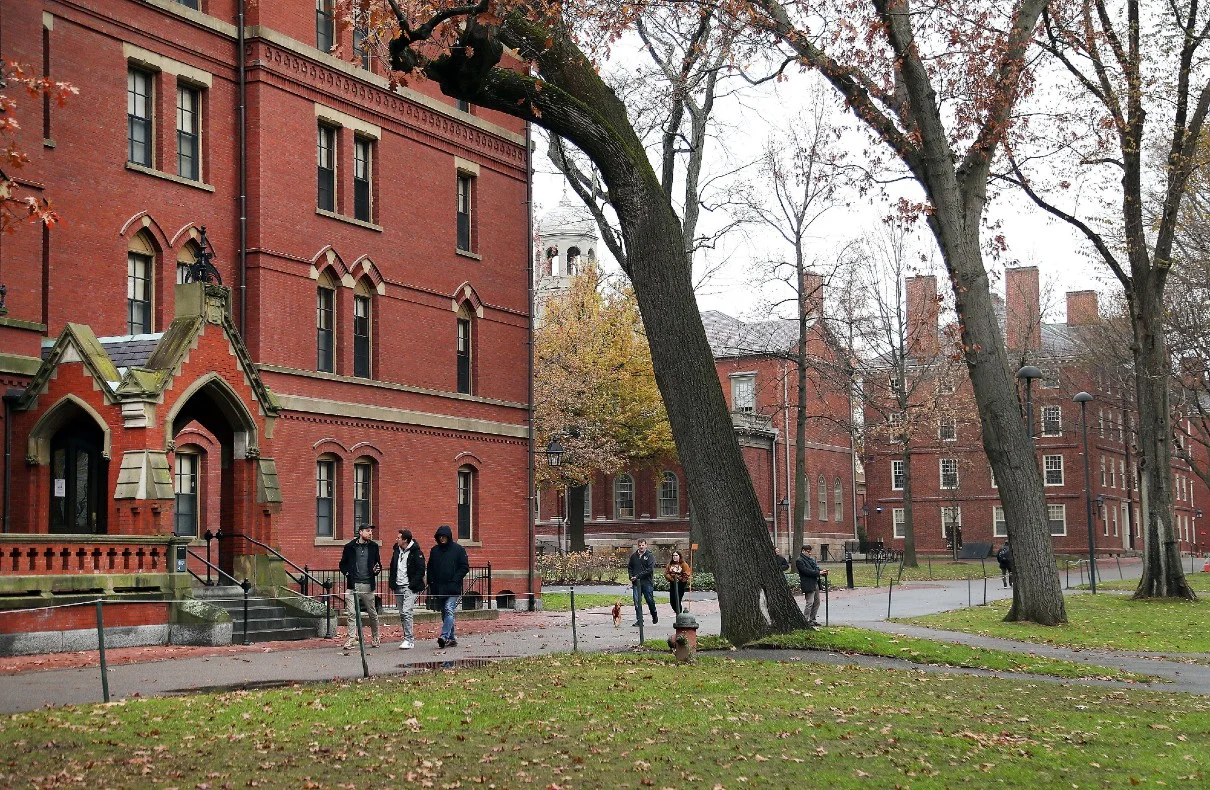
Harvard University has been at the center of a heated debate surrounding its approach to combating antisemitism on campus. The establishment of a task force dedicated to addressing this issue has sparked controversy and drawn criticism from various quarters. Former Harvard president Larry Summers, renowned economist and influential figure, has been particularly vocal in his opposition to the choice of co-chair for the task force, Professor Derek Penslar.
In an effort to confront the pervasive problem of antisemitism, Harvard’s interim president, Alan Garber, announced the establishment of two presidential task forces. One task force was specifically dedicated to addressing antisemitism, while the other focused on combating Islamophobia and anti-Arab bias. The university’s intent was to thoroughly examine the root causes of these issues and formulate recommendations to foster a more inclusive environment for all members of the Harvard community.
Despite the noble intentions behind the task force’s formation, the selection of Professor Derek Penslar as co-chair immediately drew criticism. Larry Summers, the former president of Harvard, expressed his strong reservations about Penslar’s suitability for the role. Summers questioned the determination and ability of Harvard’s leadership to ensure an environment where Jews and Israelis can flourish. His concerns stemmed from Penslar’s past actions and public statements regarding Israel and antisemitism.
Unveiling the Ancient Secrets of Earth Desert Star Dunes
One of the main points of contention raised by Summers and others was a letter signed by Penslar, along with thousands of other academics, clergy members, and public figures. The open letter, circulated in August, condemned the Israeli government and characterized it as an apartheid regime. It accused American Jewish billionaire funders of supporting the Israeli far right. Critics argue that signing such a letter undermines the credibility and impartiality of an individual tasked with leading efforts to combat antisemitism.
Derek Penslar’s views on antisemitism at Harvard have also come under scrutiny. In a December op-ed for The Crimson, Penslar suggested that the problem of antisemitism may have been exaggerated by external forces. While acknowledging the existence of antisemitism on campus, he argued that its scope had been amplified beyond reality. This assertion further fueled the controversy surrounding his appointment and raised questions about his ability to objectively address the issue.
As one of the most prominent voices criticizing Harvard’s approach, Larry Summers has been unrelenting in his condemnation of the university’s leadership. He argues that Penslar’s public minimization of the antisemitism problem at Harvard is deeply problematic. Summers draws a parallel with the hypothetical situation of appointing someone who downplays racism to head an anti-racism task force. He insists that Penslar should step aside to ensure the task force’s effectiveness and credibility.
While the controversy surrounding Penslar’s appointment has dominated the narrative, there have been voices defending him as well. The American Academy for Jewish Research, an organization specializing in Jewish studies, issued a statement praising Penslar’s expertise and commitment to the task force’s work. Two Harvard professors, Alison Frank Johnson and Steven Levitsky, penned an op-ed in The Crimson arguing that Penslar is the right choice based on his academic credentials and expertise.
In the face of mounting criticism, Harvard’s leadership, including interim president Alan Garber, has reaffirmed its commitment to addressing antisemitism and fostering inclusivity on campus. The university acknowledges the increase in antisemitic and Islamophobic acts and the subsequent erosion of a sense of belonging among affected groups. Garber emphasizes the need to understand the underlying causes and take proactive measures to combat hate and discrimination.
The Rise of Antisemitism on College Campuses: Harvard University Under Scrutiny
Larry Summers has not limited his criticism to Derek Penslar alone but has also directed his ire at the Harvard Corporation, the powerful board that governs the university. Summers believes that the Corporation’s handling of the crisis and the Penslar appointment has exacerbated Harvard’s credibility problems regarding antisemitism. He urges the Corporation to acknowledge its missteps and take corrective measures to restore confidence within the Harvard community and prospective students.
In addition to the internal challenges faced by Harvard, the university has also grappled with the issue of concerning content on social media platforms. Harvard officials recently met with executives from Sidechat, a popular app among college students, to discuss an increase in antisemitic messages on the platform. Harvard has taken steps to address the issue, including engaging with Sidechat leaders and forwarding concerning content to the university’s police department for potential law enforcement action.
The controversy surrounding Harvard’s antisemitism task force and the broader issue of combating antisemitism on campus have significant implications for the university’s reputation. Harvard, as a prestigious institution, is under scrutiny not only from within its community but also from external stakeholders, including lawmakers and federal officials. It is crucial for Harvard to effectively address these concerns and demonstrate its commitment to creating an inclusive and safe environment for all.
Harvard University’s efforts to combat antisemitism through the establishment of a task force have faced significant challenges and controversy. The choice of co-chair, Derek Penslar, has been met with opposition, with critics arguing that his past actions and statements undermine his suitability for the role. However, there are also voices defending Penslar’s expertise and commitment to the task force’s mission.
Harvard’s leadership faces the daunting task of addressing these concerns, restoring credibility, and reestablishing a sense of inclusivity within the university community. The outcome will undoubtedly shape Harvard’s reputation and standing as an institution committed to combating discrimination and fostering a diverse and tolerant campus environment.
